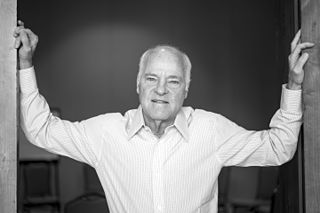A Quote by Noam Chomsky
Roughly speaking, I think it's accurate to say that a corporate elite of managers and owners governs the economy and the political system as well, at least in very large measure.
Related Quotes
Our capitalistic scheme in the latter years of the 20th century seems to have lost its way. We've had a "pathalogical change" from traditional owners capitalism where most of the rewards have gone to those who make the investments and assume the risks to a new and deeply flawed system of managers capitalism where the managers of our corporations our investment system, and our mutual funds are simply take too large a share of the returns generated by our corporations and mutual funds leaving the last line investors - pension beneficiaries and mutual fund owners at the bottom of the food chain.
The idea that a relatively fixed group of privileged people might shape the economy and government for their own benefit goes against the American grain. Nevertheless, the owners and top-level managers in large income-producing properties are far and away the dominant power figures in the United States. Their corporations, banks, and agribusinesses come together as a corporate community that dominates the federal government in Washington. Their real estate, construction, and land development companies form growth coalitions that dominate most local governments.
Well, I think that when you think about the challenges we face, these are challenges that require us to look forward and not backwards. When it comes to the economy I think we have to recognize that we are now in a global economy. And that the measure of our success is: how well are we training our workers? How well are we investing in the new energy economy?
What is called 'capitalism'is basically a system of corporate mercantilism, with huge and largely unaccountable private tyrannies exercising vast control over the economy, political systems, and social and cultural life, operating in close cooperation with powerful states that intervene massively in the domestic economy and international society.
The great goal of the backlash is to nurture a cultural class war, and the first step in doing so, as we have seen, is to deny the economic basis of social class. After all, you can hardly deride liberals as society's "elite" or present the GOP as the party of the common man if you acknowledge the existence of the corporate world - the power that creates the nation's real elite, that dominates its real class system, and that wields the Republican Party as its personal political sidearm.
In our society, real power does not happen to lie in the political system, it lies in the private economy: that’s where the decisions are made about what’s produced, how much is produced, what’s consumed, where investment takes place, who has jobs, who controls the resources, and so on and so forth. And as long as that remains the case, changes inside the political system can make some difference-I don’t want to say it’s zero-but the differences are going to be very slight.
A famous, very often quoted phrase says: "That government is best, which governs least." I do not believe this to be a correct description of of the functions of a good government. Government ought to do all the things for which it is needed and for which it is established. Government ought to protect the individuals within the country against the violent and fraudulent attacks of gangsters, and it should defend the country against foreign enemies. These are the functions of government within a free system, within the system of the market economy.
Any country is hard to govern, even a very small country. It's not a question of whether the country is large or small. It's a question of how you relate to the work, to what extent you feel responsible for it. Russia is also hard to govern. Russia is at the development stage of both its political system and the creation of a market-based economy. It's a complicated process, but very interesting. Russia, actually, is not just a large country, it's a great country. I mean its traditions, and its cultural particularities.
The Constitution. . . illustrates the complexity of the American system: that it serves the interests of a wealthy elite, but also does enough for small property owners, for middle-income mechanics and farmers, to build a broad base of support. The slightly prosperous people who make up this base of support are buffers against the blacks, the Indians, the very poor whites. They enable the elite to keep control with a minimum of coercion, a maximum of law--all made palatable by the fanfare of patriotism and unity.



































